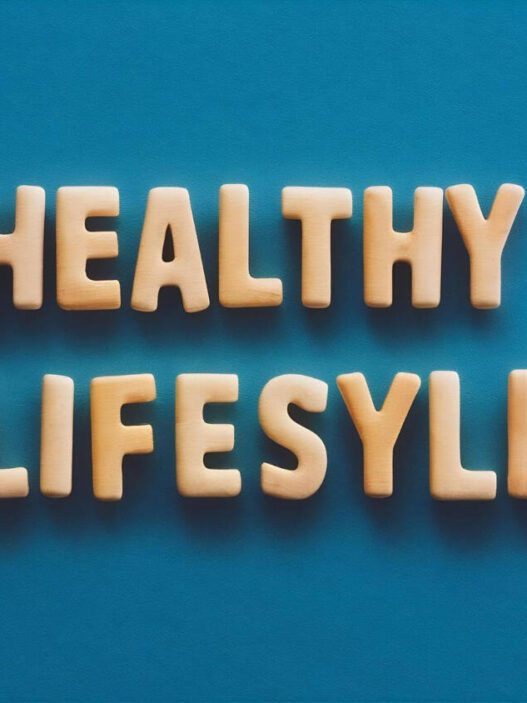In this article, Dr. Rita discusses the benefits of self-compassion and how self-compassion can help cope with chronic illnesses and pain. Chronic inflammation, over time, develops, causing physical symptoms and emotional responses that can worsen the chronic condition. A thorough care plan that considers the specific needs of the individual makes space for holistic healing, kindness, and compassion. Positive emotions can help lessen symptoms and enhance the quality of life. The holistic healing approach treats the underlying emotional states to help finds calm, accept, and progress through life’s challenges— with personalized advice on cultivating self-compassion in those with chronic pain.
Chronic Illness, Pain, Inflammation & Your Emotions
Chronic disease can make daily life difficult. Challenges in finding ways to cope, let alone knowing the next best thing to do, cause many complex emotions. For example, guilt, shame, and self-blame can exacerbate pain and lead to emotional imbalances and autonomic nervous system disruption. The fight, flight freeze response becomes dominant and causes the sympathetic nervous system to be overactive.
Studies show emotional states can impact inflammation in the body through their effects on the autonomic nervous system and hormone regulation. For example, stress and negative emotions can activate the release of stress hormones such as cortisol, increasing inflammation. As a result, inflammatory markers impede healing and worsen the pain.
Contrarily, positive emotions and relaxation techniques such as meditation, mindfulness, and yoga can activate the relaxation response, decreasing cortisol and releasing oxytocin resulting in lower inflammation and calming down the sympathetic nervous system response.
Lifestyle changes that promote physical activity, less processed, anti-inflammatory diet, and good sleep habits can also help regulate inflammation levels in the body and thereby contributes towards holistic healing.
Giving oneself Grace to heal can make the journey more manageable and let go of perfection, judgment, and self-criticisms. Self-compassion is essential in the context of chronic illness or pain. Living with a chronic condition can be physically and emotionally draining and often require significant daily adjustments. In addition, day-to-day living can be unpredictable due to the state.
Holistic Healing Approaches through Self-Compassion & Grace
Wellness involves more than just managing physical symptoms; holistic healing approaches look at the whole person prioritizing the mind-body interconnectedness. Healing refers to becoming well or complete again, whether physically, emotionally, or spiritually. At the same time, holistic healing involves addressing the underlying causes of illness or distress and working toward acceptance. Acceptance is vital for compassion, or forgiveness one extends to self or others. One is learning rather than dwelling on mistakes or shortcomings. A holistic approach to well-being and healing focuses on finding peace, acceptance, and development through life’s challenges.
Holistic Healing includes:
- Prioritize self-care, such as getting enough rest
- Eat less processed foods and a whole food plant-based diet
- Engage in activities that bring you joy and help you manage stress
- Be kind to yourself – treat yourself as you would a good friend
- Seek medical treatment and work with healthcare professionals to develop a comprehensive care plan that addresses your unique needs
- Improve the quality-of-life benefits from a mind-body approach, understanding the interconnectedness
- Give control of the situation
- Empower to manage symptoms
- Build resilience
Turning inward and having compassion for the challenges—creating that space for a safe and nurturing environment helps healing and growth. A judgment-free zone emerges where letting go of perfectionism and accepting yourself as you are, flaws and all, with an unconditional allowing understanding that healing is a process occurring at the pace needed per individual.
Practicing Self-Compassion & Grace for Chronic Pain and Illness & Holistic Healing
The article by Trompetter, Bohlmeijer, and Veehof (2017) provides specific tips on increasing self-compassion in chronic pain patients. Study’s results, practices promoting self-compassion could benefit individuals with chronic pain. The study article suggests that daily diaries, which included self-compassion, emotional well-being, pain severity, and pain-related disability, may have helped the patients become more aware of their experiences and develop more self-compassion.
You also allow yourself to feel and process your emotions, even if they are difficult or uncomfortable. You are allowing the expression of feelings to take care of yourself physically, mentally, and emotionally including getting enough rest, nourishing your body with healthy food, engaging in activities that bring joy and peace, and seeking support when needed.
Grace is not about self-indulgence or avoiding responsibilities. Instead, it’s about treating yourself with kindness, compassion, and understanding as you work towards your healing and growth.
The 2017 study used daily diary entries to assess a self-compassion intervention’s impact on chronic pain patients’ emotional well-being.
The intervention consisted of three exercises to foster self-compassion:
1. Writing a compassionate letter to oneself
2. Engaging in a loving-kindness meditation
3. Keeping a daily diary to reflect on and acknowledge painful experiences with self-kindness and understanding
The study found that the self-compassion intervention improved emotional well-being, decreased negative affect, and increased positive affect throughout the 30-day diary period. Incorporating self-compassion into everyday life can significantly improve overall well-being.
6 simple ways to add self-compassion into a daily routine:
Start your day with positive affirmations
Begin your day by reminding yourself that you are worthy of love and kindness. Repeat positive affirmations that resonate with you to cultivate a positive mindset for the day. Positive affirmations can help rewire your brain
Practice self-care
Taking care of yourself physically and emotionally is a critical part of self-compassion. Engage in activities you enjoy and prioritize your health and well-being —knowing yourself and doing activities that bring you joy.
Speak kindly to yourself
Notice when your inner critic starts to take over and speak to yourself like you would a dear friend. Replace negative self-talk with positive and uplifting words. Silencing your inner critic can be challenging, but the way to create awareness of that voice and learn ways to quiet or calm it.
Take breaks and recharge
It’s essential to take time for yourself throughout the day. Take a few deep breaths, take a short walk, or practice mindfulness to recharge and center yourself. When you take a break, disconnect fully, even for a moment.
Cultivate gratitude
Taking time each day to reflect on the things you feel gratitude for helps shift your perspective towards the positive and promotes a sense of well-being. Write a letter of appreciation to someone or yourself.
Journaling
Writing down thoughts and emotions can help individuals become more aware of their experiences and develop a more compassionate attitude toward themselves. You are getting distance from your feelings to reflect on your feelings.
Self-compassion is a practice, and it takes time and effort to develop. So, start with small steps and be gentle with yourself along the way. There is no right or wrong way to practice. Instead, go based on what works for you and trust your inner guidance of what feels right to you.
Benefits of self-compassion to cope well with chronic illnesses and pain
Manage stress and anxiety
Chronic pain and illness can cause significant stress and anxiety, but giving yourself Grace can help reduce this burden. By acknowledging that you are not perfect and that setbacks are a normal part of the healing process, you can reduce feelings of stress and anxiety.
Self-compassion
When you give yourself Grace, you are practicing self-compassion. Treating yourself with kindness, understanding, and compassion can enhance your overall well-being and make you feel more positive about yourself.
Positive self-talk
Negative self-talk can exacerbate symptoms of chronic pain and illness, but giving yourself Grace can help promote positive self-talk. Permitting yourself to forgive your mistakes and be authentic can improve your mental health and overall well-being.
Support goal attainment
Chronic pain and illness can make it challenging to achieve your goals, but giving yourself Grace can help. By acknowledging that setbacks and challenges are a normal part of the healing process, you can stay motivated and focused on your goals, even when faced with obstacles.
Promotes growth and healing
Chronic pain and illness can make it challenging to grow and heal, but giving yourself Grace can help. You can move forward positively and healthily by acknowledging your limitations and forgiving yourself for your mistakes.
The Final Words
Chronic illness or pain can be an ongoing challenge, and having the tools and support to navigate the ups and downs can make all the difference in how you experience the journey. Emotions, often bring about frustration, hopelessness, and helplessness and can cause people to feel like they have lost control over their lives. By giving oneself Grace, one acknowledges that it is okay not to be perfect and that it is natural to experience a range of emotions when dealing with chronic pain.
Self-compassion can Help reduce the stress and tension that can contribute to unease and help focus on self-care and healing. Reducing stress and anxiety, improving self-compassion, promoting positive self-talk, supporting goal attainment, and promoting growth and recovery, can improve your overall well-being and help you achieve your goals.
Prioritize self-care, seek medical treatment, and develop coping mechanisms and resilience to help you manage the ongoing challenges of your condition.
Source
Trompetter, H. R., Bohlmeijer, E. T., & Veehof, M. M. (2017). Self-compassion and emotional well-being in chronic pain patients: a diary study. Journal of Health Psychology, 22(11), 1385-1395. https://doi.org/10.1177/1359105316634415.

Dr. Rita is an Integrative Medicine Physician. She offers coaching to women to help them feel better in control of their life and live well with a health challenge.











